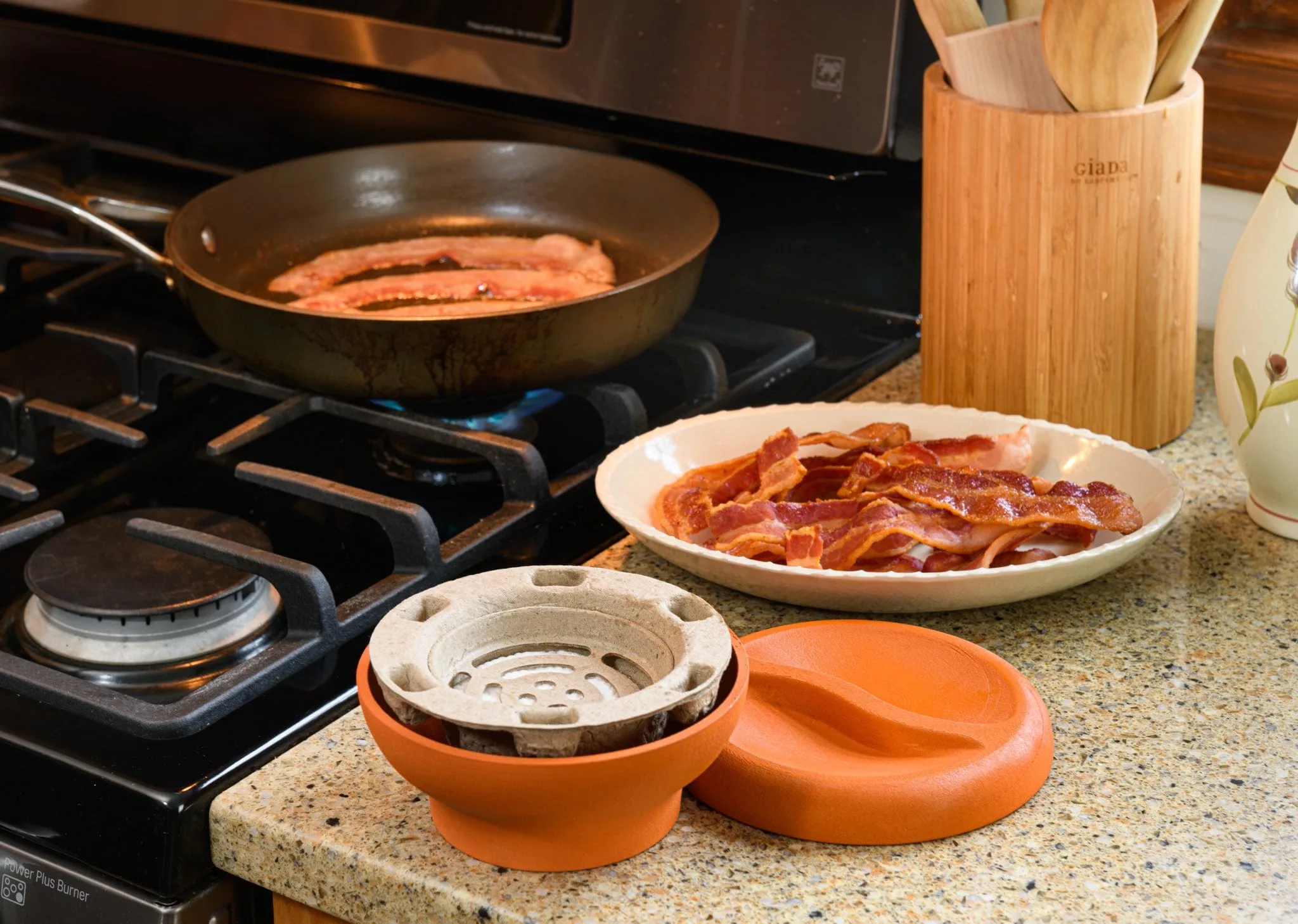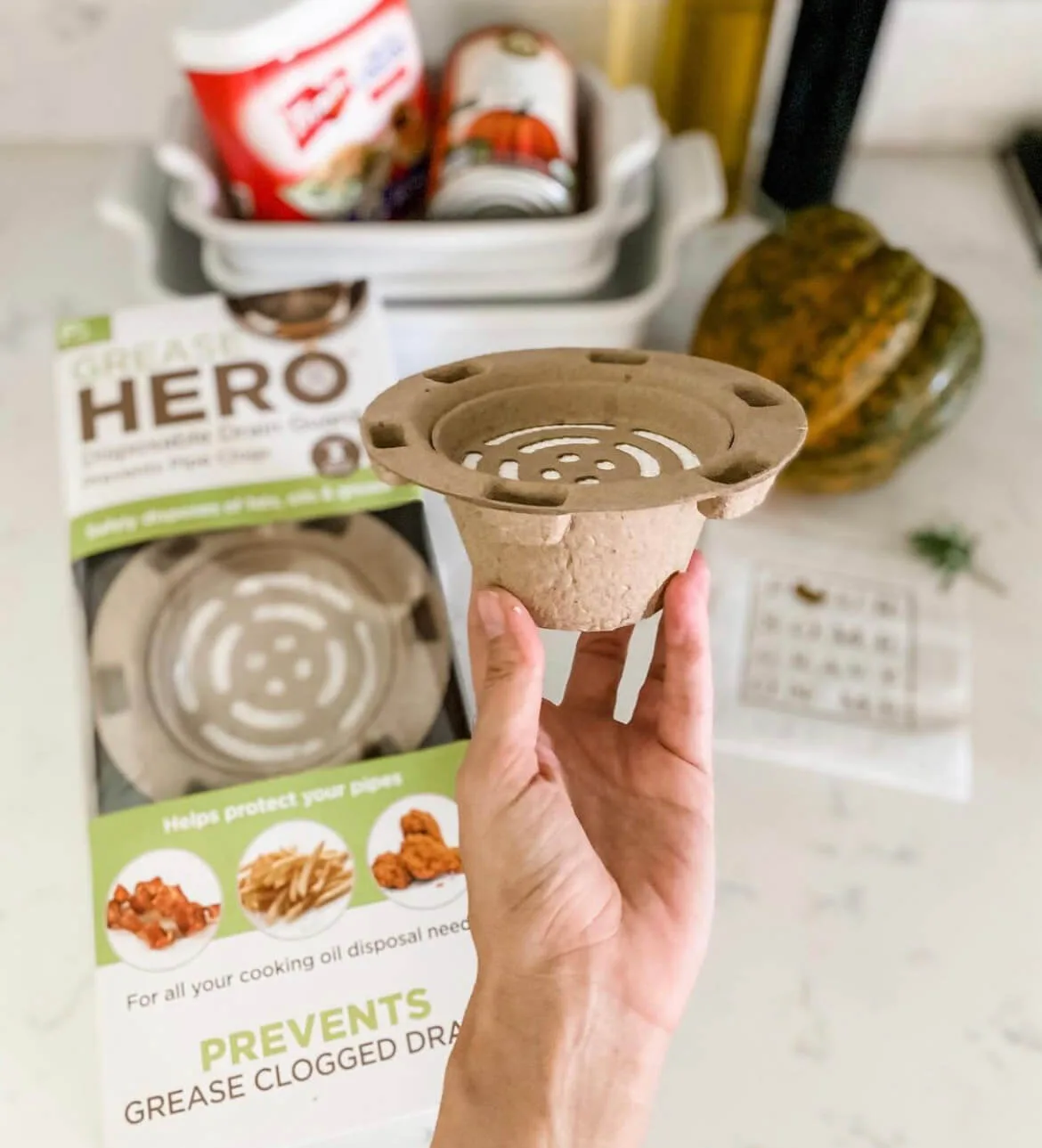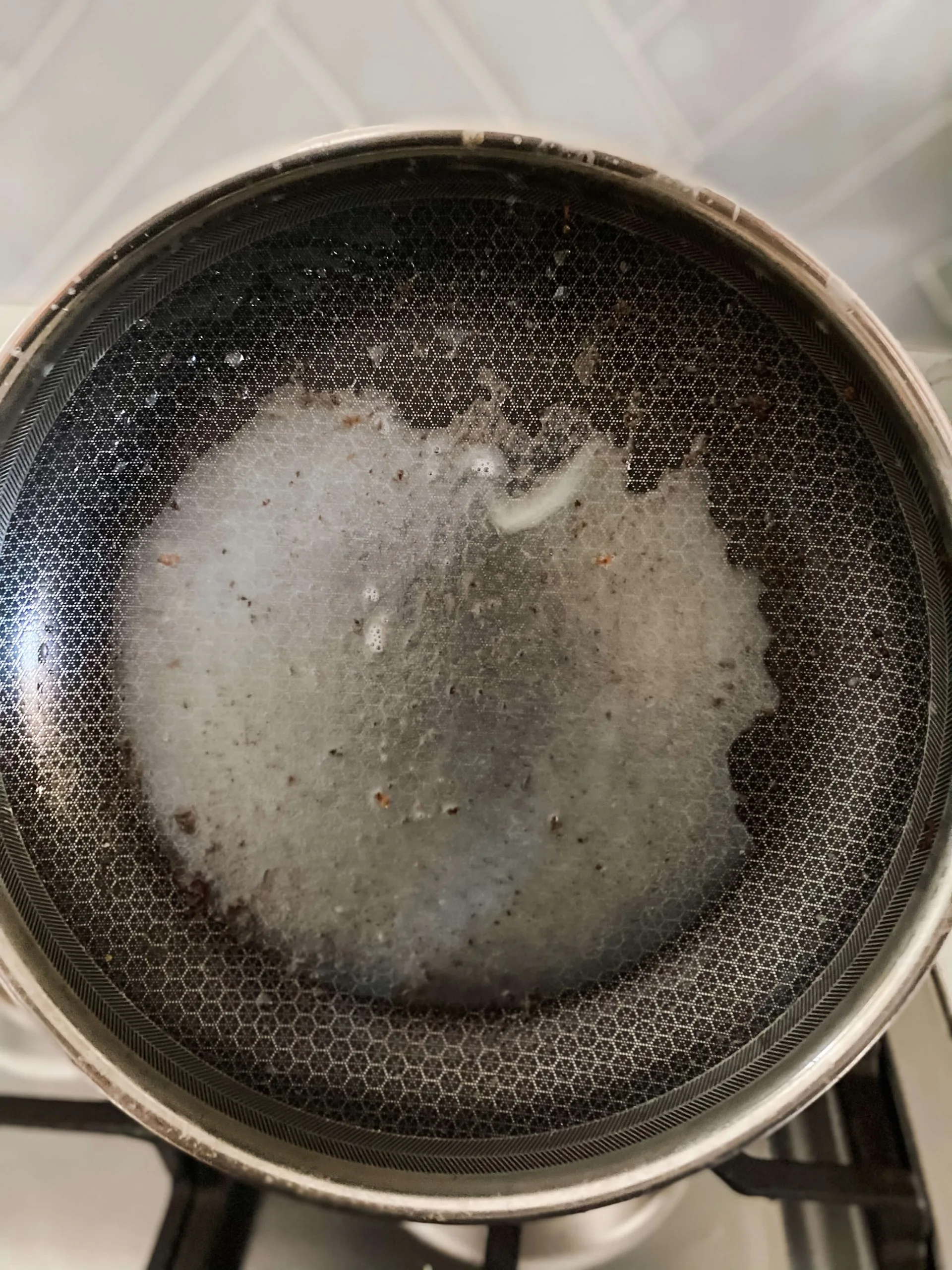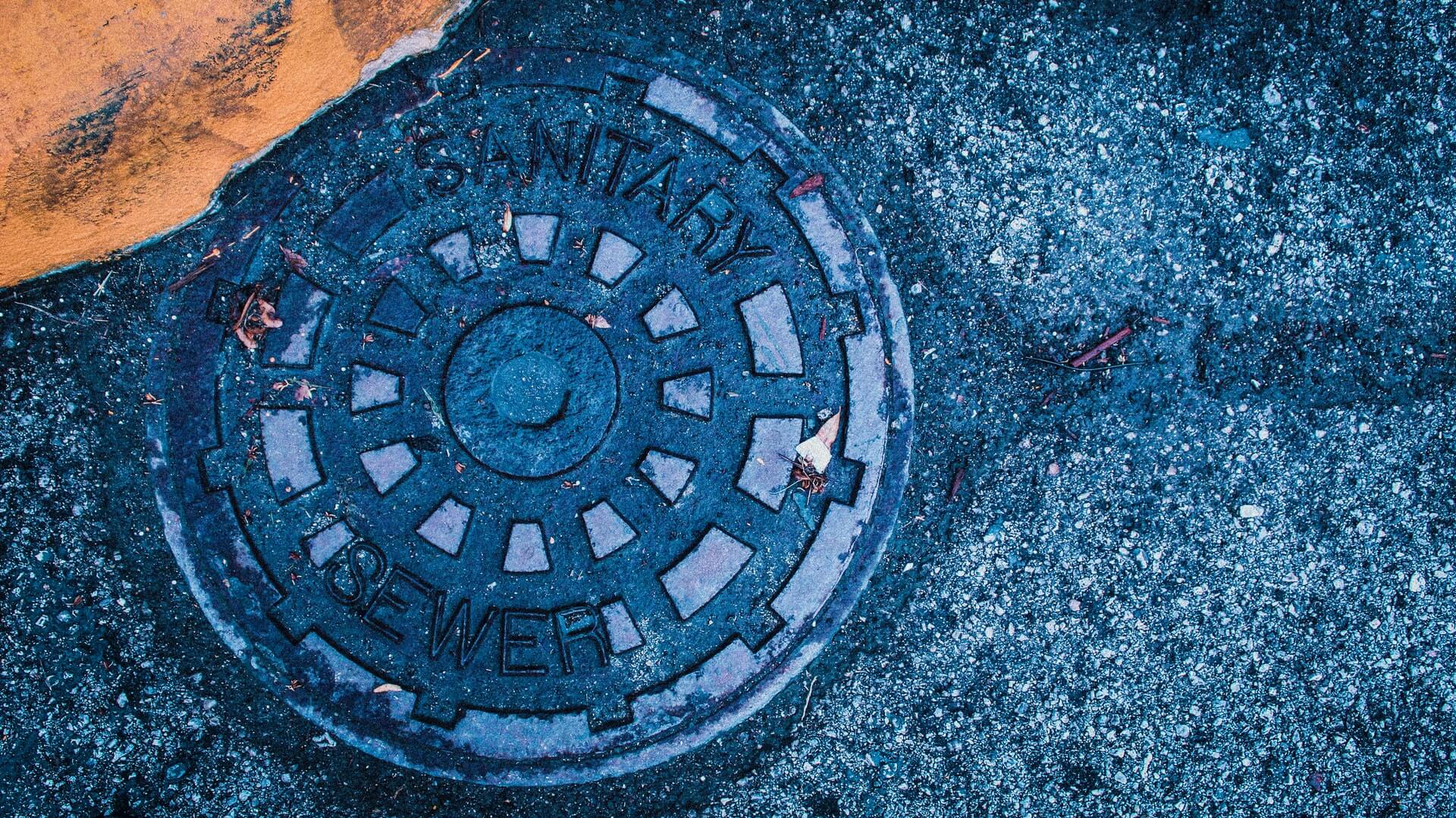Your cart is currently empty!
Tag: fatberg
-

Improper Cooking Oil and Grease Disposal Leads to Pollution
Proper cooking oil and grease disposal are critical to not only your city’s sewer lines but the overall health of our environment. When sewer pipes become clogged with cooking fats, oils, grease and other items rinsed down the sink and flushed down the toilet, that raw sewage then spills out and contaminates the local environment.
This was just the case recently when a fatberg clogged a sewer line and sent sewage spilling out into Wellington Harbour in New Zealand. “Unfortunately, the blockage caused some wastewater to overflow into the harbor. We encourage members of the public to avoid swimming in the area.” This contamination effects not only us but the local wildlife in the area as well.
Sewage Overflows are Toxic for Humans and Wildlife
Contaminants in the environment can look and smell pretty bad, but their impact goes beyond just aesthetics. Some pollutants resist breakdown and accumulate in the food chain. These pollutants can be consumed or absorbed by fish and wildlife, which in turn may be eaten by us. Chemicals can also get into sediments, impacting large coastal areas, threatening human health, and reducing the economic well-being of regions that depend on a healthy coastal environment (NOAA).
Proper Cooking Oil and Grease Disposal with Grease Hero
Since the inception of the Grease Hero drain guards, we have been on a mission to stop this toxic environmental pollution. We understand the lasting impact sewer overflows have on us, wildlife and our water supply, which is why we continually focus on ways to make disposing of cooking fats, oils and grease quick and easy for people cooking at home.
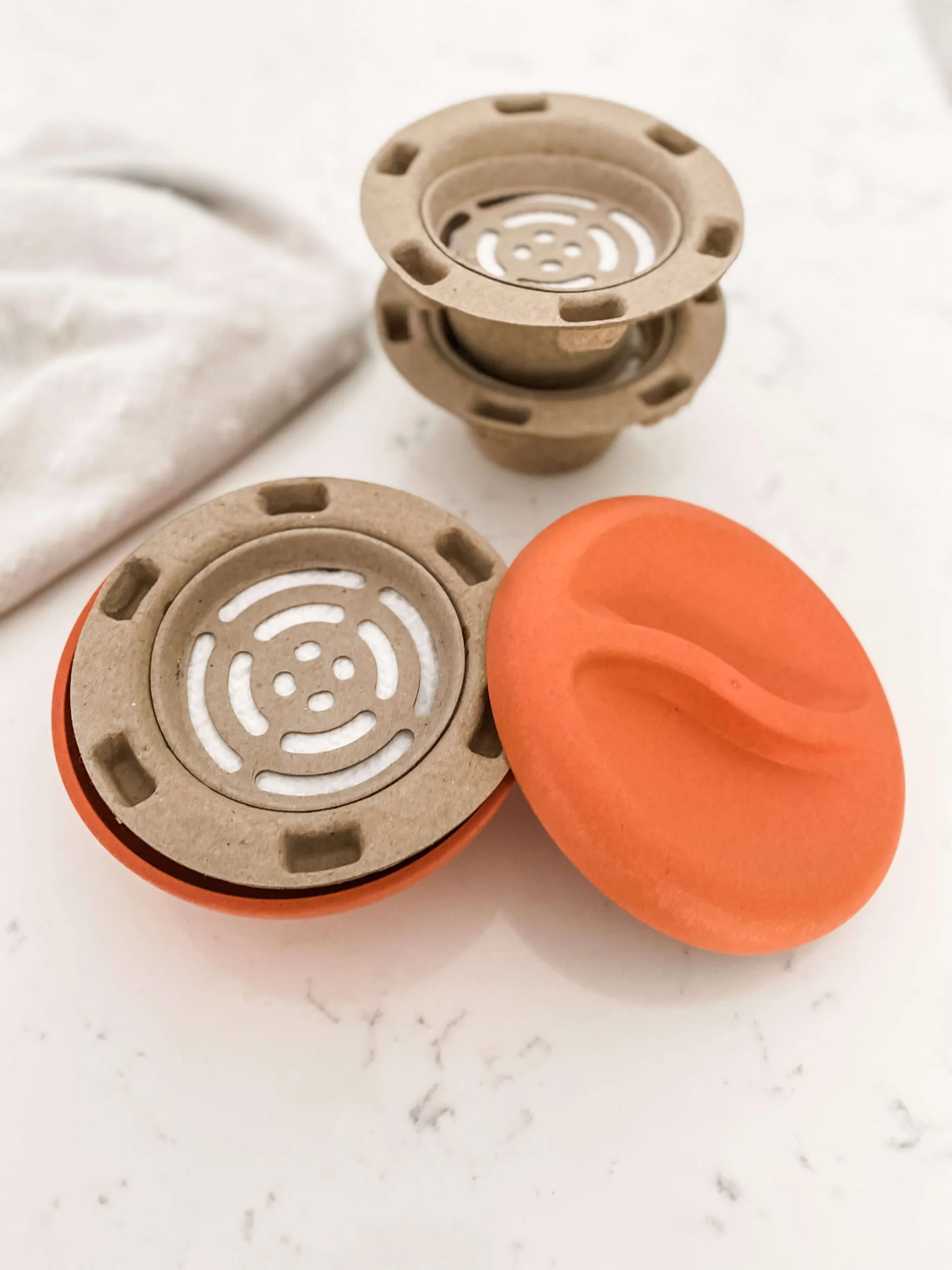 Our environmentally friendly Grease Hero drain guards are a simple solution to proper cooking oil and grease disposal. Simply set the drain guard in your sink’s drain, the counter, or a flat surface and pour your cooking fats, oils and grease directly from the pan into it. Wait one minute for the liquid to completely absorb into the recycled material of the drain guard and then dispose of it with your regular trash or at your local recycling facility.
Our environmentally friendly Grease Hero drain guards are a simple solution to proper cooking oil and grease disposal. Simply set the drain guard in your sink’s drain, the counter, or a flat surface and pour your cooking fats, oils and grease directly from the pan into it. Wait one minute for the liquid to completely absorb into the recycled material of the drain guard and then dispose of it with your regular trash or at your local recycling facility.Recently, we also launched GreaseHero PLUS which is a storage system for Grease Hero drain guards. We understand that not every meal you cook will have enough oil/grease to fill the drain guard and you may want to store it to use again until it is completely full. This is where Grease Hero PLUS comes in. With a lid that tightly attaches to the base, you can store your drain guard without having to worry about any lingering odors in your kitchen. GreaseHero PLUS is made from recycled materials and is dishwasher safe.
Proper cooking oil and grease disposal is not only important for your home and neighborhood, it’s critical for the health of our environment, wildlife and waterways.
____
Join our mission to save the environment. We aim to promote environmental, social and economic benefit, all while prioritizing the environment over our product life cycles… from the initial manufacture using recycled materials until final disposal.
Follow us on Instagram, Facebook, Twitter, LinkedIn and YouTube.
-
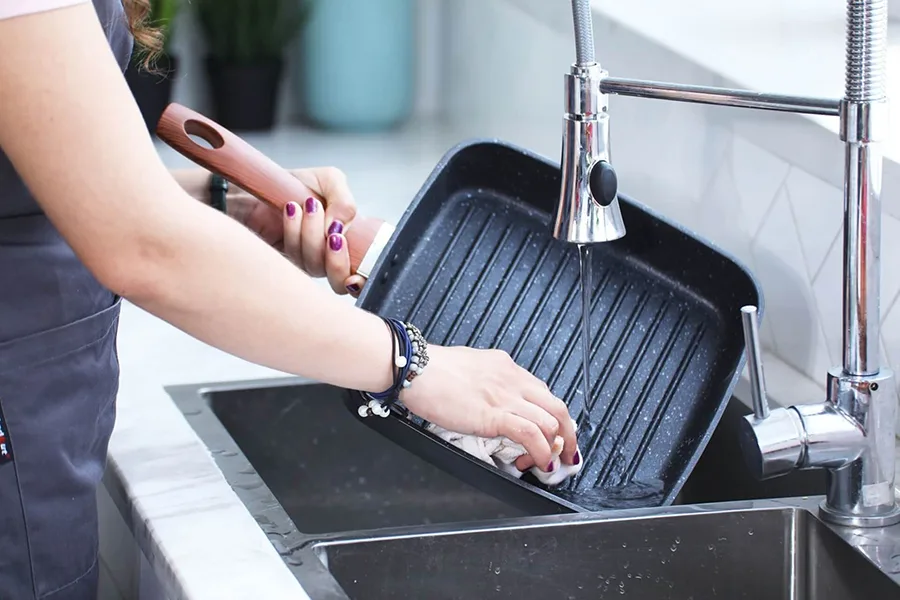
The Greasy Truth About Clogged Pipes
The greasy truth about clogged pipes is that we get them, none of us really like to talk about them and they are preventable. By taking simple actions in our home, we can limit the number of clogs we experience and drastically cut down on those plumbing bills.
Properly Dispose of Cooking Fats, Oils and Grease (Around the holidays and all year round)
Whether it is vegetable oil, bacon grease or turkey drippings they all need to be disposed of properly. When you send a pan of oil or grease down your sink, it doesn’t take long for it to adhere to the sides of your plumbing and accumulate. The oil and grease congeal and lock in food scraps as well. This turns into a hard blockage that restricts the flow of wastewater. When wastewater has nowhere to go it comes back into your home causing major property damage.
Wipe Out Those Mixing Bowls Before Rinsing
That butter, milk, cream and flour should be wiped clean from your mixing bowl before you wash it in the sink. These baking items tend to harden quickly and stick to the inside of your plumbing as well and emit a foul odor.
Depend Less on the Garbage Disposal
Garbage disposals streamline the dish washing process and make things just a little easier. The problem arises when you use yours a bit too frequently. The garbage disposal is a way to get unsightly items out of the kitchen quickly, however it is a major contributor to clogged pipes. The food that is rinsed in the garbage disposal is chopped up and then sent down your plumbing, some food though will get stuck inside your plumbing and cause the pipe diameter to narrow and eventually it becomes completely clogged.
Fatbergs Clog Sewers and Damage Neighborhoods
Entire neighborhoods can become flooded and damaged by a fatberg in the sewer line. Fatbergs in the sewer network grow very rapidly and eventually end up blocking entire portions of the sewer network.
They grow so fast because that one pan of oil or grease you rinsed down your sink, met up with other oil and grease your neighbors rinsed down their sinks. You can see how the issue grows exponentially. Once all of this fats, oils and grease meet up with food particles, wet wipes and other items flushed, it becomes hard as concrete and a major problem for sewer lines and water companies. Once a fatberg has blocked a section of a sewer line in your neighborhood, wastewater then gets pushed upward and flows out of drains and manholes into your neighborhood, homes, and the environment.
Put an End to Clogged Pipes with Grease Hero
Grease Hero is designed to be placed into the top of your kitchen sink drain, so you can quickly and easily pour the used cooking grease into it and then promptly dispose of it. It’s designed with recyclable materials to absorb the oil and grease waste and can be thrown out with your regular garbage. See Grease Hero in action on our YouTube channel. This one easy change in your kitchen cleaning routine will save you money from costly plumbing repairs, the city from expensive sewer damage, and our environment from deadly contamination.
____
Join our mission to save the environment. We aim to promote environmental, social and economic benefit, all while prioritizing the environment over our product life cycles… from the initial manufacture using recycled materials until final disposal.
Follow us on Instagram, Facebook, Twitter, LinkedIn and YouTube.
-
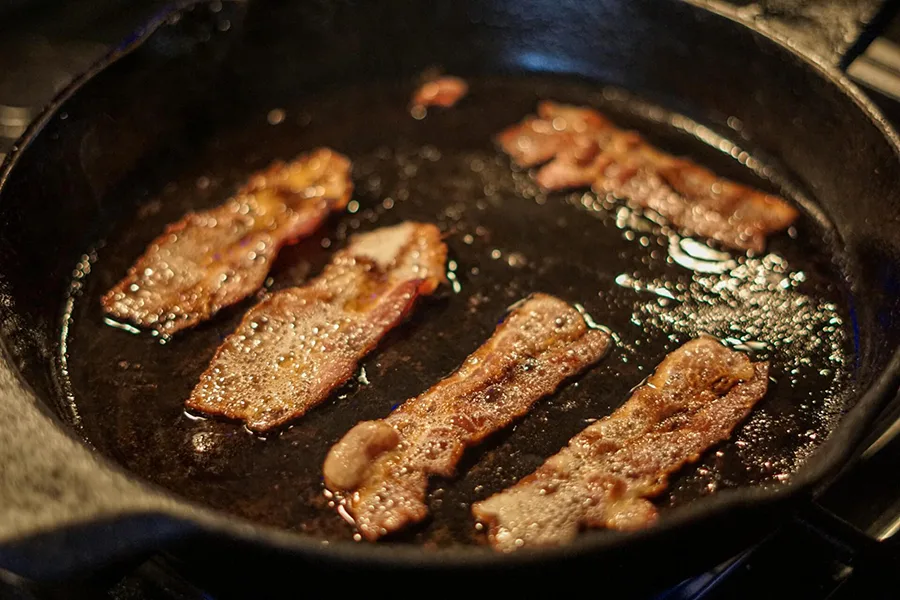
How to Dispose of Bacon Grease
The aroma and sizzling sound of bacon cooking on the stove top in the morning is met with both excitement and hunger. Nothing quite compares to that crispy piece of bacon with your meal—whether it’s next to a pile of scrambled eggs or on top of a burger, there is no substitute. While we could go on and on about the delicious flavor of bacon, there is one thing about bacon that stumps many people—how to dispose of the leftover fat/grease after cooking it.
Never Dispose of Bacon Grease Down the Sink
Simply put, bacon grease should never get rinsed down the sink drain—not the kitchen sink, bathroom sink, or laundry room sink, no sink, ever. While bacon is a great component of a meal, the grease it leaves behind it a nightmare for your plumbing. When bacon grease gets rinsed down the sink, it mixes with cooler water and immediately begins to congeal (harden) and cling to the inside of your plumbing. In time, you will notice a foul odor coming from the sink because the congealed grease continues to collect more and more food particles.
While the majority of bacon grease will stick to your plumbing, some of it will inevitably make its way into your local sewer system where it will combine with other households cooking fats, oils and grease. For a moment, stop and imagine that your entire neighborhood sends pans of bacon grease down the sink, that adds up to a lot of grease. This grease meets in the sewers system and begins to form large pipe clogging culprits, commonly referred to as ‘fatbergs’. These masses are hard as concrete and grow rapidly in city sewers. To date, the largest fatberg uncovered was in London in 2017 and it weighed in at 130 tons and 250 meters long.
Once a fatberg has blocked a section of a sewer line, wastewater then gets pushed upward and flows out of drains and manholes into local neighborhoods, homes, and the environment. Right now, you are probably thinking “what about my home?” well this raw sewage flows out of sewer lines and can end up in your home. Insurance doesn’t always cover this mess either, which means that it could be an expensive problem to remedy.
As you can see, this popular food item can cause chaos in your home if not disposed of properly.
Responsibly Dispose of Bacon Grease with GreaseHero
GreaseHero drain guards are designed to be placed into the top of your kitchen drain or on your countertop. You can quickly and easily pour the used cooking fats, oils or grease into it, and then promptly dispose of the entire drain guard, instead of rinsing these harmful contaminants down the kitchen sink.
Our GreaseHero drain guard is made with recyclable materials to absorb the fats, oils and grease and can be thrown out with your regular garbage. Watch one in action on our YouTube channel.
We recently introduced GreaseHero PLUS to our product lineup for those meals where you don’t have enough used cooking oil/grease to fill and entire drain guard. GreaseHero PLUS is a self-contained storage system for our drain guards in which you can securely store your GreaseHero drain guard until it is ready to be tossed out or recycled. With a lid that tightly attaches to the base, you do not have to worry about any lingering odors in your kitchen. GreaseHero PLUS is made from recycled materials and is dishwasher safe. Learn more about GreaseHero PLUS.
____
Join our mission to save the environment. We aim to promote environmental, social and economic benefit, all while prioritizing the environment over our product life cycles… from the initial manufacture using recycled materials until final disposal.
Follow us on Instagram, Facebook, Twitter, LinkedIn and YouTube.
-
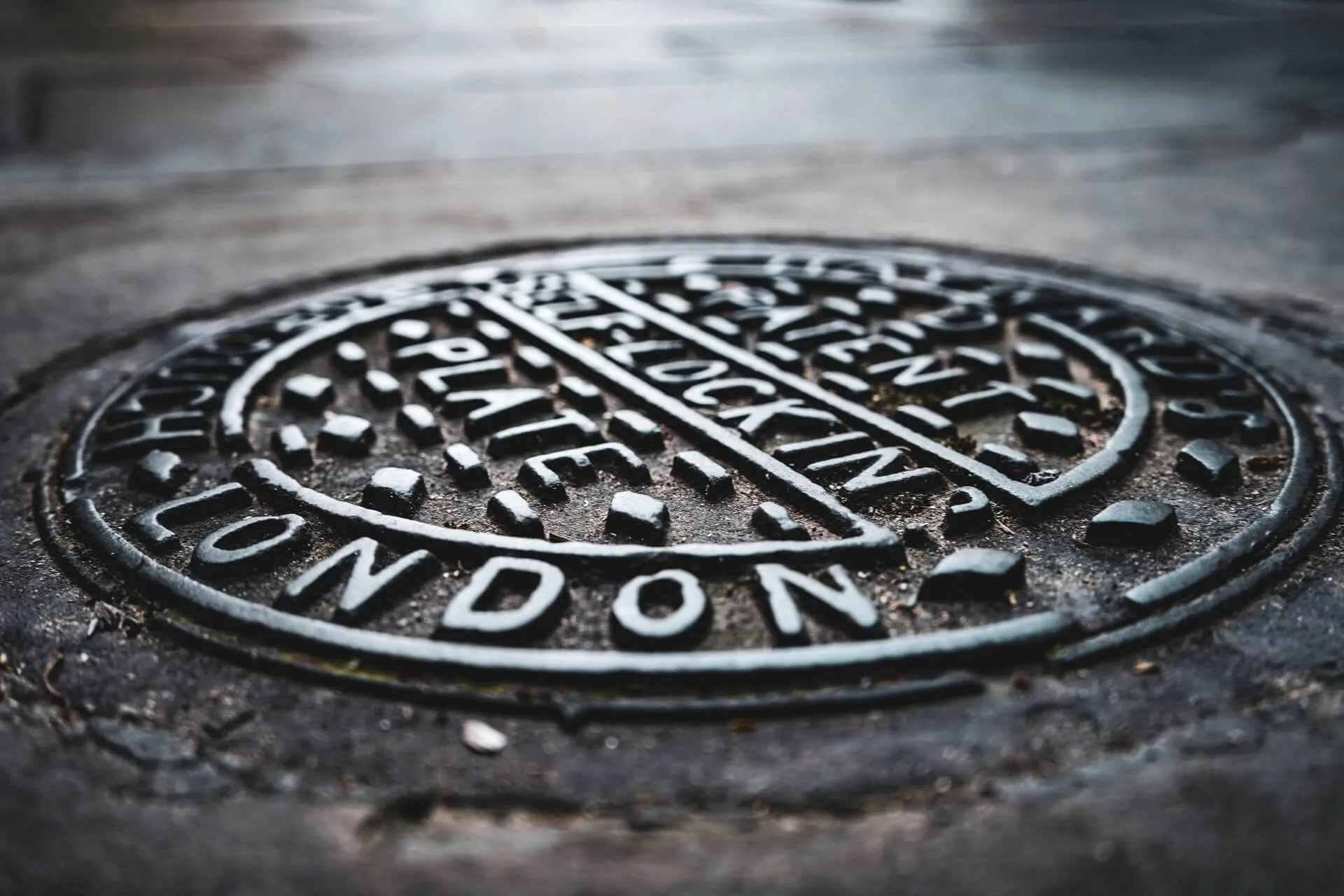
Stopping Fatbergs from Forming in City Sewers
Fatbergs are quite literally a thing of nightmares. Stopping fatbergs is imperative.
Fatbergs are mounds of congealed cooking fats, oils and grease that collect items such as wet wipes and other non-flushable items that get sent into the sewer network, to form huge blockages that restrict the flow of raw sewage—thus, sending it back up into homes, neighborhoods, and the environment through sewer overflows. These blockages become hard as concrete and frequently need to be removed by hand. The sheer mention of fatbergs will send a chill down any sanitation worker’s spine.
“A fatberg smells like rotting meat mixed with the odor of a smelly toilet,” said said Alex Saunders, sewer network manager at Thames Water. (BBC)
Stopping Fatbergs Before They Form
In order to reduce the size and frequency of fatbergs in city sewer lines, we have to start at the source—kitchens. Both residential and commercial kitchens send copious amounts of cooking fats, oils and grease down the sink and into the sewer.
Think of it this way, if you send a pan of grease down the sink after making breakfast and your neighbors all do the same, individually you might not be sending a lot but together there is a great deal of grease making its way into your neighborhood sewer line. This grease coatings the inside of the sewer line, thus restricting the flow of raw sewage. Eventually the line, and your plumbing, will become completely clogged with a fatberg and you will have raw sewage spilling out into homes, the neighborhood and environment.
If we all make the conscious decision to stop rinsing cooking oil and grease, no matter how much, we can work at stopping fatbergs from forming.
@greasehero Never pour cooking oil and grease down the sink. Fatbergs cause sewer overflows into homes + environment. Grab a Grease Hero drain guard. 🌿 #greasehero #fatbergs #cookingathometiktoktv #cleaningtiktok #bacongrease #foryou
♬ Spooky, quiet, scary atmosphere piano songs – Skittlegirl Sound
Fatbergs Are Hard + Expensive to Remove
Fatbergs are hard to remove and it’s expensive too. Most fatbergs must be removed by hand since they are as hard as concrete. A special water jet is used to break the fatberg up into smaller pieces and then those pieces are removed from the pipe by manual excavation and powerful vacuumation tanker units.
Thames Water in London spends over £1m ($1.4 million) a month removing fatbergs from across their network.
New York City spends approximately $20 million annually to clear and repair damage from fatbergs. (Water & Wastes Digest)
Stopping Fatbergs with Grease Hero
One simple way to help stop fatbergs from forming is to properly dispose of your cooking fats, oils and grease after cooking a meal. Never rinse them down the kitchen sink drain. Another easy way to make an impact, is to be mindful of what you flush down the toilet.
Grease Hero is a convenient and hassle-free way of disposing of cooking fats, oils and grease after cooking a meal. The environmentally friendly drain guard is made of recycled materials and quickly absorbs the fats, oils and grease that you pour into it directly from your cooking pan. You then simply dispose of the entire drain guard into your trash or upcycle it at your city’s recycling facility. This keeps that harmful fats, oils and grease contaminants out of your plumbing, city sewers and prevents sewer overflows into the environment.
____
Join our mission to save the environment. We aim to promote environmental, social and economic benefit, all while prioritizing the environment over our product life cycles… from the initial manufacture using recycled materials until final disposal.
Follow us on Instagram, Facebook, Twitter, TikTok, LinkedIn and YouTube.
-

Grease Hero PLUS on Amazon
Grease Hero PLUS, our environmentally friendly fats, oil and grease storage system, is now available on Amazon.
When you purchase Grease Hero PLUS on Amazon you receive the drain guard system along with two Grease Hero drain guards.
What is Grease Hero PLUS?
Grease Hero PLUS is a self-contained storage system for our drain guards in which you can securely store your Grease Hero drain guard until it is ready to be tossed out with your trash or recycled. With a lid that tightly attaches to the base, you do not have to worry about any lingering odors in your kitchen. Grease Hero PLUS is made from recycled materials and is dishwasher safe.
Why is Grease Hero PLUS important?
Where it once made sense to pour your used cooking fats, oils and grease into an aluminum can or glass jar for disposal, today, those can be easily recycled or upcycled. Instead of filling these containers with cooking oil/grease, you can recycle them and opt for an eco friendly Grease Hero drain guard instead. Grease Hero PLUS and Grease Hero drain guards are both made with recycled materials because we are committed to a more sustainable future for our planet.
Each meal you cook may not have enough oil/grease to fill an entire Grease Hero drain guard. This is where Grease Hero PLUS comes in—easily store your drain guard until it is full and ready to be tossed out (or recycled at your nearest facility).
Our Commitment to the Environment
Our commitment to protecting the environment while educating consumers about responsible cooking fats, oils and grease disposal is as strong as ever. We understand the hidden dangers of clogged pipes in your home, fatbergs in sewer systems and the havoc sewer overflows have on local wildlife and our clean water supply. Our Grease Hero system is one simple way you can make a positive impact on the health of our planet.
____
Join our mission to save the environment. We aim to promote environmental, social and economic benefit, all while prioritizing the environment over our product life cycles… from the initial manufacture using recycled materials until final disposal.
Follow us on Instagram, Facebook, Twitter, TikTok, LinkedIn and YouTube.
-

Skip Grease Clogs This Thanksgiving
There is nothing about Thanksgiving we don’t love — the smells, the laughter, the cozy feeling of home, the time to slow down with those that you love and, of course, the delicious food. We want you to enjoy your holiday without worrying about expensive and messy grease clogs, so below is a handy list to save (or memorize) of items that should never go down the sink.
Never Rinse These Items Down the Kitchen Sink Drain
The Thanksgiving holiday is especially stressful for household drains. Grease clogs are an expensive problem to fix and it also means that you could experience a sewer backup into your home. To skip a major plumbing problem this holiday season, always properly dispose of cooking fats, oils and grease. Here is a list of common cooking and baking items that get rinsed down the sink, which cause major plumbing issues for you and large sewer issues for your neighborhood and city.
All of these items contain pipe clogging FOG (fats, oils and grease):
- Butter
- Cooking oil
- Grease
- Food scraps
- Lard
- Margarine
- Meat scraps
- Shortening
- Salad Dressing
- Dairy (cream, milk and yogurt)
Avoid a costly bill from your plumber this holiday season by following a few basic rules when it comes to disposing of food items.
- Scrape food from dishes into your trashcan prior to washing them in the sink.
- Place a strainer in the sink to catch food scraps and dispose of them in the trash.
- Do not rinse any fats, oils or grease down your kitchen sink drain. Responsibly dispose of FOG after cooking a meal with the Grease Hero.
Stock Up on Grease Hero for Holiday Cooking
Grease Hero is designed to be placed into the top of your kitchen sink drain, so you can quickly and easily pour the used cooking grease into it and then promptly dispose of it. It’s designed with recyclable materials to absorb the oil and grease waste and can be thrown out with your regular garbage. See Grease Hero in action on our YouTube channel. This one easy change in your kitchen cleaning routine will save you money from costly plumbing repairs, the city from expensive sewer damage, and our environment from deadly contamination.
Ditch the grease clogs, plumbing issues and headache this Thanksgiving and entire holiday season by following these simple disposal tips.
Additional posts related to this topic:
- Your Holiday Cooking Prep Guide
- Turkey Grease Clogs Pipes, No Grease Down the Sink This Thanksgiving
____
Join our mission to save the environment. We aim to promote environmental, social and economic benefit, all while prioritizing the environment over our product life cycles… from the initial manufacture using recycled materials until final disposal.
Follow us on Instagram, Facebook, Twitter, TikTok, LinkedIn and YouTube.
-

Holiday Cooking Can Lead to Fatbergs
Whether it’s Thanksgiving, Christmas, Easter, or a normal weekend breakfast, avoid damaging your plumbing by never rinsing cooking fats, oil and grease down the sink. Holiday cooking can wreak havoc on your home’s plumbing, neighborhood sewer lines and the environment if there are sewer overflows due to fatbergs. The good news is that all these headaches and nightmare scenarios are completely avoidable with proper and responsible food disposal habits.
No Turkey or Ham Grease Down the Sink
From Business Insider: Thanksgiving means turkey dinners, family gatherings and football. For household drains and aging sewers across the United States, it means a lot of grease going down the pipes – and into the sewers.
For some harried cooks, the simplest way to get rid of fat from turkeys, bacon and roasts is down the kitchen drain. There it congeals, clogging the pipe and trapping food scraps until the only solution is to call the plumber.
“The day after Thanksgiving is the perfect storm for us,” said Paul Abrams, a spokesman for Roto Rooter, the biggest U.S. plumbing and drain cleaning service. “We have all hands on deck.” The number of calls to the company’s 7,000 plumbers and drain experts that day jumps 50 percent over a normal Friday. Calls go up by a fifth over the four-day Thanksgiving weekend, Abrams said.
Whether it is turkey drippings, vegetable oil or bacon grease they all need to be disposed of properly this Thanksgiving, and every day throughout the year. When you send a pan of oil or grease down your sink, it doesn’t take long for it to adhere to the sides of your plumbing and accumulate. The oil and grease congeal and lock in food scraps as well. This turns into a hard blockage (fatberg) that restricts the flow of wastewater. When wastewater has nowhere to go it comes back into your home causing major property and environmental damage.
Keep Dairy, Dressings and Food Scraps Out of Your Plumbing
Fats, oil and grease are found in a range of everyday foods. Salad dressing, melted butter, milk, sour cream, gravy, all of these items can lead to clogged plumbing in your home and horrible fatbergs in your neighborhood.
Here are some great tips from Florida Today on preventing FOG (fats, oils and grease) buildup in your plumbing:
- Never pour cooking oil, pan drippings, bacon grease, salad dressings or sauces down the sink or toilet or into street gutters or storm drains.
- Dispose of food scraps into the trash, not the sink.
- Don’t use a garbage disposal or food grinder. Grinding food up before rinsing it down the drain does not remove FOG; it just makes the pieces smaller.
- Place a catch basket or screen over the sink drain when rinsing dishware, or when peeling or trimming food, to catch small scraps that would otherwise be washed down the drain. Throw the scraps in the trash.
We are already seeing an uptick in fatbergs as we enter the fall and holiday cooking season. If we all take a moment to be mindful of our disposal habits and work on improving them, we can avoid fatbergs and sewer overflows in our own homes, neighborhoods, cities and environment.
Grease Hero Drain Guards Stop Fatbergs from Forming
Grease Hero is a convenient and hassle-free way of disposing of cooking fats, oils and grease after cooking a meal. The environmentally friendly drain guard is made of recycled materials and quickly absorbs the fats, oils and grease that you pour into it directly from your cooking pan. You then simply dispose of the entire drain guard into your trash or upcycle it at your city’s recycling facility.
____
Join our mission to save the environment. We aim to promote environmental, social and economic benefit, all while prioritizing the environment over our product life cycles… from the initial manufacture using recycled materials until final disposal.
Follow us on Instagram, Facebook, Twitter, LinkedIn and YouTube.
-

Three Ways You Can Protect the Ocean from Pollution
“You cannot get through a single day without having an impact on the world around you. What you do makes a difference, and you have to decide what kind of difference you want to make.” – Jane Goodall, English Primatologist and Anthropologist
This week is Discovery Channel’s Shark Week, and we are huge proponents of protecting sharks, and all marine life, from polluted waters. Whether you live in a coastal city or are landlocked, there are simple measures you can take to protect our ocean and keep it free of pollution.
Fact: Grease Hero is headquartered in Hawai’i.
Properly dispose of cooking fats, oils and grease.
When cooking fats, oils and grease are rinsed down the kitchen sink they create havoc for your home’s plumbing, sewer systems and treatment facilities. With enough grease being rinsed from different homes in your neighborhood, fatbergs can quickly grow. The grease that doesn’t stick to the inside of your plumbing makes its way into the sewer network where it joins up with wastewater from your neighborhood.
Fatbergs in the sewer network grow very rapidly and eventually end up blocking entire portions of the sewer network. They grow so fast because that one pan of oil or grease you rinsed down your sink, met up with other oil and grease your neighbors rinsed down their sinks. You can see how the issue grows exponentially. Once all of these fats, oils and grease meet up with food particles, wet wipes and other items flushed, it becomes hard as concrete and a major problem for water companies.
Once a fatberg has blocked a section of a sewer line, wastewater then gets pushed upward and flows out of drains and manholes into local neighborhoods, homes, the environment and ultimately the ocean.
- 17 million gallons of sewage discharged from Hyperion treatment plant, closing some beaches to swimming (Los Angeles Times)
Reduce your use of single-use plastics.
Single-use plastics include plastic bags, water bottles, straws, cups, utensils, dry cleaning bags, take-out containers, and any other plastic items that are used once and then discarded. By carrying reusable items with you, it is easy to say no to these single-use items and protect the ocean.
“Plastic pollution is one of the greatest threats to ocean health worldwide. With skyrocketing plastic production, low levels of recycling, and poor waste management, between 4 and 12 million metric tons of plastic enter the ocean each year—enough to cover every foot of coastline on the planet! And that amount is projected to triple in the next 20 years. Let that sink in for a moment.” (Oceanic Society)
Recycle and upcycle household items.
Commit to recycling household waste. Those delivery boxes, food cans and milk jugs can all be recycled. Upcycling is also another way to get creative with your waste. With upcycling you find ways of using discarded items—a quick internet search for upcycling shows you thousands of ways people have got creative and found innovative ways to repurpose items.
At present, just 9% of plastic is recycled worldwide. Recycling helps keep plastics out of the ocean and reduces the amount of “new” plastic in circulation. (Oceanic Society)
The ocean shapes our planet, and it is our job to protect it and all its inhabitants. By taking these simple steps we can keep pollution and trash out of the ocean. Let’s pass on a healthy planet to future generations. Join us on our mission to protect the ocean from pollution.
____
Join our mission to save the environment. We aim to promote environmental, social and economic benefit, all while prioritizing the environment over our product life cycles… from the initial manufacture using recycled materials until final disposal.
Follow us on Instagram, Facebook, Twitter, LinkedIn and YouTube.
-

Congealed Grease Down the Sink is a Plumbing Nightmare
Congealed grease is a messy and expensive plumbing problem.
In liquid form grease seems like it would rinse easily down the drain, however that is not the case, grease quickly congeals after it is poured from your pan and into the sink, causing major plumbing problems. “Grease solidifies in the pipes and acts as a sticky trap for gunk and debris. Over time this blockage can clog the pipes or slow the drain. Grease also wreaks havoc on local sewer systems and septic tanks.” (Mr. Rooter)
Congealed Grease in Your Plumbing
When grease is poured down the sink and mixes with cooler water, within minutes it begins to cool and coat the inside of your plumbing. It congeals around the interior of your pipe and begins to shrink the diameter in which wastewater can drain through it. As you continue to use your sink, the congealed grease will begin to collect food particles from your garbage disposal and anything else that is rinsed—thus shrinking the width of your pipe even further. With improper rinsing habits, it will not take long before you begin to notice a foul smell emanating from your drain.
This foul smell will then turn into a major plumbing issue once your drain becomes completely clogged and wastewater is sent back up through the drains in your home.
The Binding Agent of Fatbergs? Congealed Grease.
With enough grease being rinsed from different homes in your neighborhood, fatbergs can grow, and grown and grow. The grease that doesn’t stick to the inside of your plumbing makes its way into the sewer network where it joins up with wastewater from your neighborhood.
This wastewater contains a wide assortment of chemicals and items, causing all of it to begin bonding together into a waxy compound in which fats, oils and grease are the main bonding agents. These waxy, almost soapy, balls are called fatbergs.
Fatbergs in the sewer network grow very rapidly and eventually end up blocking entire portions of the sewer network. They grow so fast because that one pan of oil or grease you rinsed down your sink, met up with other oil and grease your neighbors rinsed down their sinks. You can see how the issue grows exponentially. Once all of these fats, oils and grease meet up with food particles, wet wipes and other items flushed, it becomes hard as concrete and a major problem for water companies.
To date, the largest fatberg uncovered was in London in 2017 and it weighed in at 130 tons and 250 meters long.
Sewer Overflows Caused by Fatbergs
Once a fatberg has blocked a section of a sewer line, wastewater then gets pushed upward and flows out of drains and manholes into local neighborhoods, homes, and the environment.
When sewers overflow into the environment and waterways, the damage caused is not quickly repaired. Contaminants in the environment can look and smell terrible, but their impact goes beyond just aesthetics. Some pollutants resist breakdown and accumulate in the food chain. These pollutants can be consumed or absorbed by fish and wildlife, which in turn may be eaten by us. (NOAA)
Grease Hero Drain Guards
Ditch the congealed grease plumbing nightmare altogether with Grease Hero drain guards. The Grease Hero drain guard is designed to be placed into the top of your kitchen drain or on your countertop. You can quickly and easily pour the used cooking fat, oil or grease into it, and then promptly dispose of the entire drain guard, instead of rinsing these harmful contaminants down the kitchen sink. Our Grease Hero drain guard is made with recyclable materials to absorb the fats, oils and grease and can be thrown out with your regular garbage. Stock up on Grease Hero drain guards today.
Learn more about fatbergs with these additional articles:
- Six (Almost) Unbelievable Facts About Fatbergs
- Bacon Grease — The Ultimate Drain Clogging Culprit
- Two Easy Ways to Dispose of Grease Hero Drain Guards
____
Join our mission to save the environment. We aim to promote environmental, social and economic benefit, all while prioritizing the environment over our product life cycles… from the initial manufacture using recycled materials until final disposal.
Follow us on Instagram, Facebook, Twitter, LinkedIn and YouTube.
-

Fatbergs are Clogging Sewers and Causing Problems… Again
Fatbergs are clogging sewers, causing headaches for cities and making the news once again. With the recent find of a 300-ton fatberg in an English city, we are reminded that fatbergs are always growing right under our feet. Fatbergs (the combination of fat and iceberg) form over time as people continually rinse cooking fats, oils and grease down the sink and flush items that do not break down.
While cities are constantly dealing with smaller fatbergs that cause clogged sewer lines which lead to sewer overflows into the environment, it’s the massive ones that make headlines. This recent giant fatberg is estimated to be half a mile long, three feet in height and weigh the equivalent of 250 family cars. It could also take until June to clear it from the sewer. “This giant mass is the result of everyone washing and flushing the wrong things down the drains and not realizing the impact that it is having.” (BBC)
Thames Water, which operates the water system in London, says it spends £1 million a month, ($1.4 million), to clear blockages of this kind. (CNN)
Fatbergs in Sewer Lines
Fatbergs occur in sewer lines when non-biodegradable material (i.e. flushable wipes) mixes with cooking fats, oils and grease to form large clumps that are as hard as concrete and quickly grow to block sewer lines. Once a sewer line is blocked, the wastewater and flushed material flows back into homes, neighborhoods and the environment through sewer overflows. Fatbergs are clogging sewers at an alarming rate but by properly disposing of cooking byproducts (fats, oils and grease) while being mindful of what we flush, we can all make a difference when it comes to these sewer monsters.
Grease Hero Drain Guards Stop Fatbergs from Forming
Grease Hero is a convenient and hassle-free way of disposing of cooking fats, oils and grease after cooking a meal. The environmentally friendly drain guard is made of recycled materials and quickly absorbs the fats, oils and grease that you pour into it directly from your cooking pan. You then simply dispose of the entire drain guard into your trash or upcycle it at your city’s recycling facility. This keeps that harmful fats, oils and grease contaminants out of your plumbing, city sewers and prevents sewer overflows into the environment.
Learn more about fatbergs with these additional articles:
- Six (Almost) Unbelievable Facts About Fatbergs
- Fatbergs Making News Due to COVID-19
- Bacon Grease — The Ultimate Drain Clogging Culprit
____
Join our mission to save the environment. We aim to promote environmental, social and economic benefit, all while prioritizing the environment over our product life cycles… from the initial manufacture using recycled materials until final disposal.
Follow us on Instagram, Facebook, Twitter, LinkedIn and YouTube.
